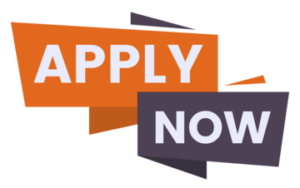This Course Structure is Curated as per the NEP-2020 Guidelines
Course Overview
The B.Sc. in Oral Biology is a 4-year undergraduate program that provides students with a strong foundation in craniofacial sciences, oral microbiology, molecular biology, and regenerative medicine. This program integrates fundamental biological sciences with advanced research methodologies, preparing graduates for careers in research, academia, diagnostics, and biotechnology.
The curriculum covers key areas such as
- Oral and Craniofacial Anatomy & Physiology – Understanding the structure and function of the oral cavity, craniofacial complex, and related biological systems.
- Oral Microbiology & Immunology – Study of oral pathogens, host immune responses, and microbial interactions in oral health and disease.
- Molecular Biology & Genetics in Oral Health – Application of genomics, proteomics, and bioinformatics to study oral diseases and tissue regeneration.
- Dental Biochemistry & Pathophysiology – Exploration of biochemical processes involved in oral health, including enzymatic activity, mineralization, and saliva composition.
- Tissue Engineering & Regenerative Medicine – Understanding biomaterials, stem cells, and scaffolding techniques for oral tissue regeneration.
- Oral Disease Diagnostics & Biomarkers – Study of diagnostic techniques, salivary biomarkers, and molecular pathology of oral diseases.
- Research Methodology & Scientific Writing – Training in experimental design, statistical analysis, and academic publishing.
- Forensic Odontology & Oral Pathology – Application of oral biology in forensic investigations, disease identification, and medico-legal cases.
- Epidemiology & Public Health in Oral Biology – Study of oral health trends, preventive strategies, and public health initiatives.
- Internships & Research Training – Hands-on experience in oral biology research labs, hospitals, and biotechnology companies.
- Capstone Research Project – Focusing on innovations in molecular diagnostics, tissue engineering, or oral microbiome research.

Course Details
Description: 4 Years Degree Program
No. of Seats: 40
No. of Credits: 160 minimum & as specified
- Eligibility
- Curriculum Structure
- Program Outcomes
- Career Enhancement
- Higher Studies
- Job Roles & Progression
A pass in 10 + 2 with Physics, Chemistry, and Biology/Mathematics as main subjects from a recognized board (CBSE, ISC, or equivalent).
| Semester | Courses |
|---|---|
| Semester I |
Oral Biosciences & Morphology Human Anatomy and Physiology (Head and Neck Focus) Oral Histology Biochemistry in Oral Health Minor Courses (Choose 2): – Bioinformatics for Oral Research – Biomedical Engineering – Dental Waste Management & Environmental Impact – Basics of Dental Imaging and Radiology – Computational Modeling in Medicine – Nutrition and Health – Health and Society – Fundamental in 3D Printing in Dentistry Oral Biology Laboratory Skills I English Communication Skills I Communication and Interpersonal Skills for Healthcare Professionals |
| Semester II |
Molecular Biology in Oral Health Oral Microbiology & Immunology Genetics in Health Sciences Minor Courses (Choose 2): – Bioinformatics for Oral Research – Biomedical Engineering – Dental Waste Management & Environmental Impact – Basics of Dental Imaging and Radiology – Computational Modeling in Medicine – Nutrition and Health – Health and Society – Fundamental in 3D Printing in Dentistry Oral Biology Laboratory Skills II English Communication Skills II Understanding India: Cultural and Scientific Contributions Summer Internship II |
| Semester III |
Developmental Biology of Oral and Craniofacial Structures Oral Pathology: Diseases of Hard and Soft Tissues with Radiology Oral Cancer Biology Pharmacology Minor Courses (Choose 2): – Quality Improvement in Health Care – Diagnostic Sciences – Systems Biology – Nutrition and Oral Health – Healthcare Management Imaging and Diagnostic Skills I Entrepreneurship Clinical Research and Data Analysis I |
| Semester IV |
Research Methodology Biotechnology Bioinformatics Evidence-Based Biomedical Research Minor Courses (Choose 2): – Quality Improvement in Health Care – Diagnostic Sciences – Systems Biology – Nutrition and Oral Health – Healthcare Management Imaging and Diagnostic Skills II Digital Literacy and Basic Programming for Healthcare Applications Summer Internship VI |
| Semester V |
Advanced Oral Microbiology and Immunology Medical and Research Ethics Quality Improvement in Health Care Minor Courses (Choose 2): – Computational Biology – 3D Printing – Biomaterials – Epidemiology – Neurobiology Forensic Odontology Advanced Dental Imaging Techniques Clinical Research and Data Analysis II |
| Semester VI |
Advanced Oral Microbiology and Immunology Stem Cells and Regeneration in Oral Biology Regenerative Medicine and Tissue Engineering Minor Courses (Choose 2): – Computational Biology – 3D Printing – Biomaterials – Epidemiology – Neurobiology Innovations in Oral Health Technology Comprehensive Oral Cancer Management |
| Semesters VII & VIII |
Responsible Conduct of Research and Basics in Grantsmanship Public Speaking, Research Presentation, and Scientific Writing Skills Advanced Research Development Publication and Presentation Industry Collaboration |
Total Credits for Course: 164
Additional Requirements: NCC/NSS/Sports/Yoga/Extension Activities
- PLO1 (Cognitive – Comprehend) – Understand fundamental concepts in oral biology, human anatomy, physiology, and microbiology, and apply them to oral healthcare and disease prevention.
- PLO2 (Cognitive – Apply) – Utilize molecular biology, genetics, and bioinformatics to analyze the pathophysiology of oral diseases and contribute to diagnostic advancements.
- PLO3 (Psychomotor – Demonstrate) – Perform laboratory techniques in histology, microbiology, and tissue engineering, ensuring precise handling of biological specimens and biomaterials.
- PLO4 (Affective – Develop) – Cultivate effective communication and presentation skills, collaborating with peers, clinicians, and researchers in oral health sciences.
- PLO5 (Cognitive – Utilize) – Apply analytical, computational, and research methodologies to investigate oral diseases, regenerative medicine, and biomaterials applications.
- PLO6 (Affective – Exhibit) – Demonstrate leadership and teamwork abilities to coordinate interdisciplinary research, with a commitment to ethical and social responsibilities in oral healthcare.
- PLO7 (Affective – Innovate) – Develop entrepreneurial and managerial skills, preparing for careers in oral biology research, biotechnology, or healthcare industries.
- PLO8 (Affective – Practice Professionalism) – Adhere to ethical guidelines, legal frameworks, and scientific integrity in oral biology and health sciences research.
- Oral Disease Research & Molecular Diagnostics – Working in genomic research, oral biomarker analysis, and disease diagnostics
- Biotechnology & Pharmaceutical Industries – Contributing to drug development, tissue engineering, and regenerative medicine innovations.
- Forensic Odontology & Legal Investigations – Assisting in forensic analysis using dental records, DNA identification, and microbial profiling.
- Academic & Research Institutions – Pursuing postgraduate studies (M.Sc., Ph.D.) in oral biology, molecular medicine, or regenerative sciences.
- Public Health & Epidemiology – Working on oral disease prevention programs, health policy development, and epidemiological research.
- Dental and Medical Laboratories – Specializing in oral microbiome studies, biomaterials testing, and diagnostic innovations.
- Entrepreneurship & Innovation – Establishing biotech startups, diagnostic labs, or research firms focusing on oral health solutions.
- M.Sc. in Oral Biology or Oral Pathology: Further studies in specialized areas of oral biology, focusing on advanced diagnostics and therapeutic applications.
- Ph.D. in Oral Biology or Oral Immunology: Advanced research opportunities in the field of oral health, particularly in understanding the role of oral biology in systemic health.
- Postgraduate Diploma in Oral Regenerative Medicine or Oral Surgery: Specializing in advanced surgical techniques and regenerative approaches in oral healthcare.
- Certification in Clinical Research: Expanding knowledge and expertise in clinical research methodologies, particularly in the context of oral health trials and studies.
Duration | Roles and Responsibilities | Salary Range |
0-3 years | Oral Biology Technician, Oral Microbiologist, Laboratory Technician | ₹3,50,000 – ₹5,00,000 per annum |
3-5 years | Senior Oral Pathologist, Oral Research Associate, Microbiologist | ₹5,00,000 – ₹7,00,000 per annum |
5-10 years | Oral Health Consultant, Oral Regenerative Specialist, Research Scientist | ₹7,00,000 – ₹10,00,000 per annum |
10+ years | Director of Oral Biology Research, Chief Oral Health Specialist | ₹10,00,000+ per annum |

Fee Structure Per Academic Year
| Tuition Fee | Miscellaneous Fee | Scholarship | ||
| 75000 ₹ | 10000 ₹ | Above 90% – 20000 ₹ | Between 80-90% – 10000 ₹ | Between 70-80% – 5000 ₹ |
| Tuition Fee | Miscellaneous Fee | Scholarship | |||
| 100000 ₹ | 15000 ₹ | Above 95% – 100000 ₹ | Above 91% – 50000 ₹ | Between 81-90% – 10000 ₹ | Between 71-80% – 5000 ₹ |



